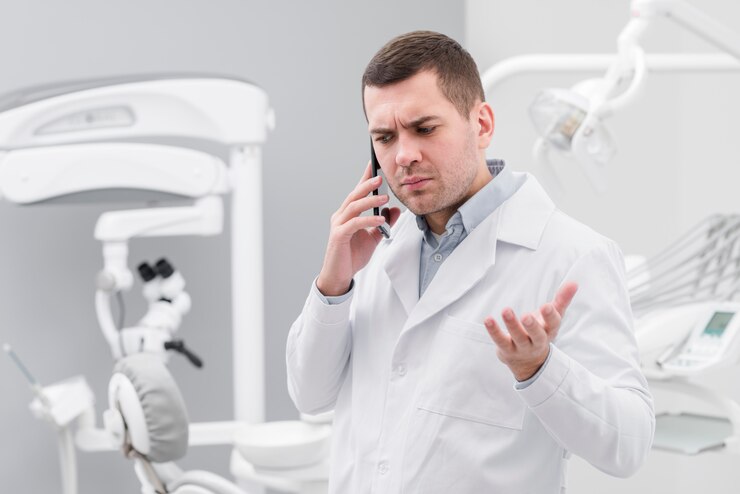Dental emergencies can strike unexpectedly, causing intense pain and potential long-term damage. Whether it’s a sudden toothache, a cracked tooth, or an injury, knowing how to handle these situations and when to seek help from an emergency dentist is essential. In this blog, we’ll explore what constitutes a dental emergency, the services provided by emergency dentists, and how to find the right professional to address your urgent dental needs.
What Is an Emergency Dentist?
An emergency dentist is a dental professional who is available outside of regular office hours to provide urgent care for dental issues that require immediate attention. Unlike a regular dental visit, which is typically scheduled in advance for routine check-ups or planned treatments, an emergency dental visit is intended for unplanned, urgent cases. This can include severe tooth pain, broken or lost teeth, gum infections, and trauma to the mouth or jaw. Emergency dentists are specially trained to diagnose and treat urgent dental problems quickly and efficiently to prevent further complications.
Common Dental Emergencies
Dental emergencies can come in many forms, but some of the most common reasons people seek out emergency dental care include severe toothaches, which can be the result of a cavity, abscess, or infection. Persistent or sudden tooth pain that doesn’t subside should be taken seriously, as it may indicate an underlying issue that requires immediate treatment. Chipped or broken teeth are another common reason for emergency dental visits. Accidents can happen at any time, and a chipped or broken tooth may cause not only pain but also long-term damage if not addressed quickly. Additionally, losing a tooth due to an accident or trauma is a serious dental emergency. Quick action can sometimes help save the tooth if it’s handled properly and a dentist is consulted right away.
Gum injuries are another issue that may require urgent care. Trauma to the gums or soft tissues in the mouth can lead to excessive bleeding, which may need prompt attention to prevent complications. Lastly, losing a filling or crown can expose the underlying tooth, making it susceptible to further damage or infection. This type of issue should be addressed promptly to prevent pain and protect the tooth from decay.
How to Handle a Dental Emergency
Knowing how to respond in the moment can make a significant difference. If you experience severe toothaches, rinse your mouth with warm water and use dental floss to remove any debris stuck between your teeth. Over-the-counter pain relievers can help reduce discomfort until you can see a dentist. For a knocked-out tooth, it’s crucial to act fast. If a tooth is knocked out, try to place it back into the socket gently without touching the roots. If this isn’t possible, store it in milk or saline solution and seek immediate dental care. The faster you act, the better the chances of saving the tooth.
In the case of chipped or broken teeth, rinse the mouth with warm water and apply a cold compress to reduce swelling. Over-the-counter painkillers can be taken if needed. For gum injuries, apply gentle pressure with a clean cloth to control bleeding. If the bleeding continues for more than 10 minutes or worsens, seek professional help immediately. Prompt action can reduce pain and prevent further damage, making a visit to the emergency dentist necessary.
What to Expect During an Emergency Dental Visit
When you arrive at an emergency dental clinic, the first step is an assessment. The dentist will examine your oral issue and determine the severity, followed by an appropriate treatment plan. Depending on the case, this might involve pain management through medication or local anaesthesia. Immediate relief will be provided to help alleviate discomfort and make the procedure more comfortable.
Restorative treatments may be necessary for cases involving cracked or broken teeth. Procedures such as dental bonding, filling, or a temporary crown are common solutions to protect the damaged tooth. In more severe cases, treatments like root canal therapy or tooth extraction may be performed to prevent infection and further complications. The dentist will provide you with detailed aftercare instructions to ensure a smooth recovery and prevent further issues.
Choosing the Right Emergency Dentist
When looking for an emergency dentist, it’s crucial to ensure that they offer the services you need and are accessible when urgent care is required. Availability is a key factor, so make sure the clinic operates beyond regular hours, including evenings and weekends. Having a dentist that is reachable at any time of the day or night provides peace of mind and ensures you can receive help when needed.
Location is another important consideration. Choose a dentist or dental clinic that is conveniently located so you can access care quickly in the event of an emergency. Experience and credentials are also essential; look for a dentist who is highly trained and experienced in emergency dental care. Additionally, patient reviews can offer valuable insight into the quality of care provided and the experiences of previous patients. Checking online reviews and asking for recommendations can help you find a reliable emergency dentist in your area.
Conclusion
Dental emergencies can happen when you least expect them, but knowing how to respond and having access to an emergency dentist can make all the difference in protecting your oral health and minimizing pain. From severe toothaches to knocked-out teeth, timely intervention can prevent further damage and ensure your smile stays healthy. If you’re in need of emergency dental services, don’t hesitate to reach out to your local emergency dentist or dental clinic. Being prepared can make a world of difference when it comes to maintaining your oral health and overall well-being.







